Are Essential Oils Actually Oils
Essential oils have gained popularity in recent years for their various uses and potential health benefits. But what exactly are essential oils, and how are they different from other oils? In this article, we will explore the process of making essential oils, the different methods of extraction, and the various types available. We will also discuss the uses of essential oils, including aromatherapy, cleaning, and skincare. We will address safety concerns, possible side effects, and the real health benefits of using essential oils for stress, pain relief, and skin conditions. Join us as we uncover the truth about essential oils.
Key Takeaways:
What Are Essential Oils?
Essential oils are concentrated plant extracts that capture the natural scent and flavor or ‘essence’ of the plant. These oils are derived from various parts of plants through different extraction methods, retaining the characteristic fragrance and compounds of the plant.
This traditional practice has been traced back centuries, with civilizations around the world using organic essential oils for medicinal, therapeutic, and ritualistic purposes. The composition of essential oils is complex, typically containing volatile organic compounds that contribute to their unique properties.
Therapeutic grade essential oils undergo stringent distillation processes to ensure purity and potency. In aromatherapy, these oils are diffused or applied topically to promote relaxation, improve mood, and address various health concerns.
How Are Essential Oils Different From Other Oils?
Essential oils differ from other oils like carrier oils or fragrance oils due to their pure concentration of plant essence and aromatic compounds.
Unlike carrier oils, which are usually derived from nuts or seeds, essential oils are extracted from various plant parts such as flowers, leaves, or roots.
This extraction process involves methods like steam distillation, cold pressing, or solvent extraction, preserving the volatile compounds that give essential oils herbs their therapeutic properties.
Essential oils are known for their versatile uses, including aromatherapy, skincare, natural cleaning products, and even culinary applications in some cases.
How Are Essential Oils Made?
Essential oils are made through processes like distillation, steam extraction, or cold pressing. Distillation involves heating plant material to create steam, which is then condensed to extract the oil.
In steam extraction, steam is passed through the plant material, carrying the volatile compounds with it, and then cooled to separate the oil. This method is preferred for delicate flowers like roses. Learn more about plant-based essential oils.
Cold pressing involves mechanically squeezing plant material to release the oils, which works well for citrus fruits. Each method has its unique benefits and is suited for specific types of plants, ensuring the preservation of the aromatic compounds.
What Are The Different Methods Of Extracting Essential Oils?
The methods of extracting essential oils include distillation, steam extraction, and cold pressing. Each method retains specific properties of the plant and requires strict quality control to ensure the purity and efficacy of the oils.
Distillation is a common method where steam is used to separate the oil from the plant material. This process is delicate and relies on precise temperature control for successful extraction. On the other hand, steam extraction involves passing steam through the plant material, carrying the volatile oils with it. Cold pressing, often used for citrus oils, involves physical pressure to extract oils without using heat, which can alter their chemical composition.
Quality control measures play a crucial role in each extraction method. Ensuring that the raw materials are of high quality and monitoring the extraction process meticulously are essential steps in maintaining the integrity of the oils. Understanding the Latin names of plants is vital for accurate identification of species, as different varieties can produce oils with varying properties and benefits. Proper identification is key to producing consistently high-quality oils that meet consumer expectations.
What Are The Different Types Of Essential Oils?
There are various types of essential oils available, including popular ones like lavender oil, peppermint oil, and tea tree oil. Each type offers unique fragrance and therapeutic properties that cater to different needs.
Lavender oil is often used for its calming and relaxing properties, which can help reduce stress and aid in improving sleep quality. It is also known for its skin-soothing benefits and is commonly used in skincare products.
Peppermint oil is renowned for its refreshing scent and is commonly used to alleviate headaches and promote focus and mental clarity. For more information on whether essential oils contain water, visit our blog.
Tea tree oil is popular for its antibacterial and antifungal properties, making it a common choice for treating skin conditions like acne and fungal infections. These oils can be used in diffusers, topical applications, or even in DIY beauty recipes to reap their benefits.
What Are The Uses Of Essential Oils?
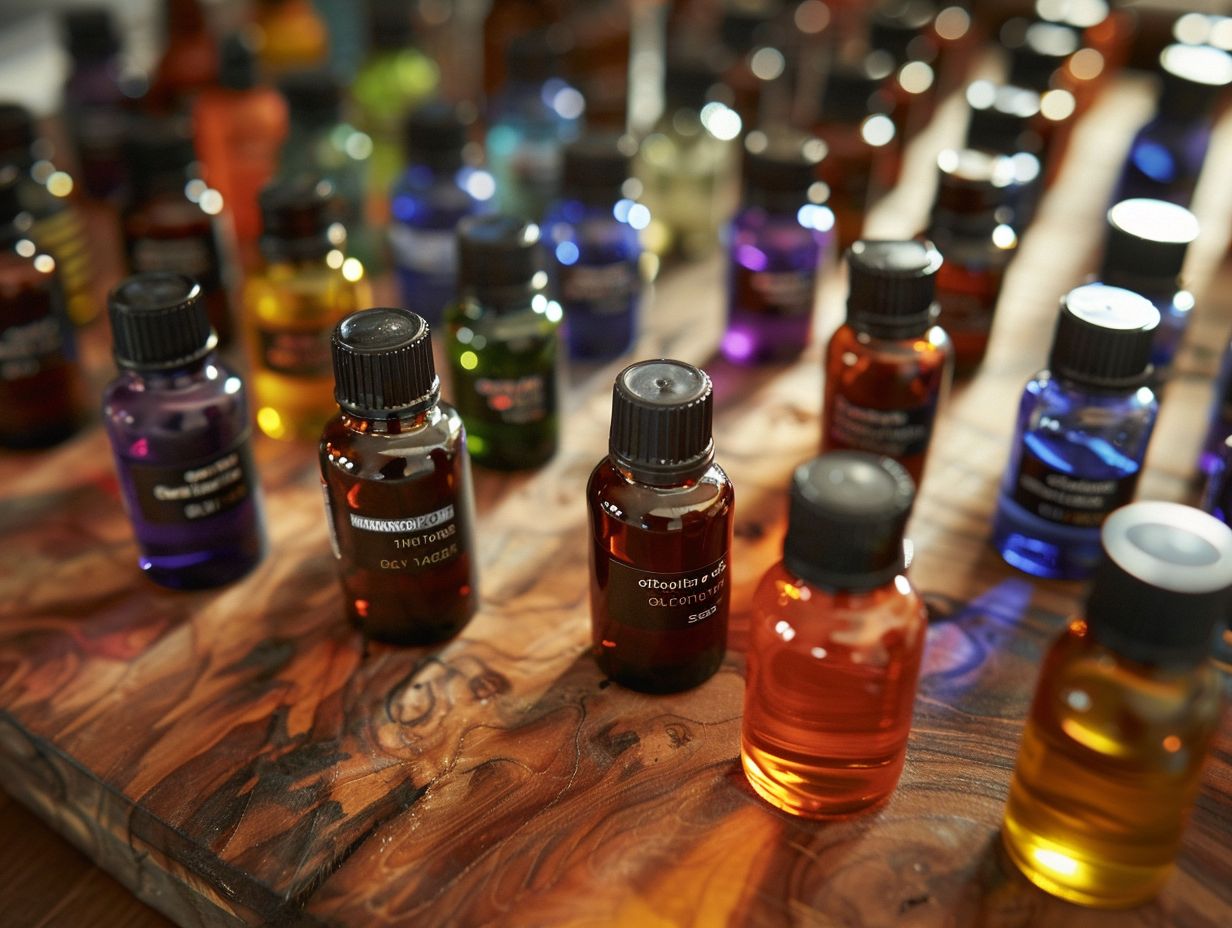
In terms of aromatherapy, essential oils are known for their ability to promote relaxation, reduce stress, and improve overall well-being through their calming and uplifting scents. Many people incorporate these oils into their daily skincare routines to address specific skin concerns, such as acne, dryness, or aging. The antibacterial and antifungal properties of certain essential oils also make them popular choices for creating natural cleaning products that are effective without harsh chemicals. In households, oils like lavender, tea tree, and lemon are commonly used to freshen the air, purify surfaces, and repel insects.
Can Essential Oils Be Used For Aromatherapy?
Essential oils are commonly used in aromatherapy to alleviate stress and anxiety. The inhalation of specific oils can positively impact the limbic system, influencing emotions and relaxation.
One of the key aspects of essential oils in aromatherapy is their ability to trigger responses in the brain that promote relaxation and emotional well-being. These natural plant extracts have been known to stimulate certain neurotransmitters, such as serotonin and dopamine, which play crucial roles in mood regulation and stress management. The calming properties of oils like lavender, chamomile, and rosemary make them popular choices for reducing anxiety and promoting a sense of tranquility.
Can Essential Oils Be Used For Cleaning?
Essential oils can be utilized for cleaning purposes due to their antimicrobial properties. Some oils like tea tree oil and lemon oil are FDA-approved for their effectiveness in disinfecting surfaces.
When used in cleaning solutions, essential oils can help eliminate germs and bacteria thanks to their natural antibacterial and antifungal properties. Tea tree oil, recognized for its powerful disinfecting abilities, is commonly used in homemade cleaners to sanitize household surfaces. Lemon oil, on the other hand, not only leaves a refreshing citrus scent but also acts as a safe and natural sanitizer. These oils not only cleanse effectively but also provide a non-toxic alternative to traditional chemical cleaners.
Can Essential Oils Be Used For Skincare?
Essential oils are beneficial for skincare, aiding in conditions like atopic dermatitis. Some oils, when properly diluted with carrier oils, can help with moisturizing, soothing irritation, and promoting overall skin health.
The antiseptic properties of essential oils make them efficient in fighting acne-causing bacteria, while their anti-inflammatory qualities can reduce redness and inflammation. For those with sensitive skin, it’s crucial to perform patch tests before extensive use to avoid adverse reactions. When incorporating essential oils into skincare routines, remember the significance of using the recommended dilution ratios to prevent skin irritation. Proper application methods such as mixing them into lotions or adding to baths ensure their efficacy without overwhelming the skin. Understanding the benefits and handling of essential oils can significantly improve skin conditions and enhance skin health.
Are Essential Oils Safe To Use?
While essential oils offer numerous benefits, it is crucial to use them safely. Some individuals may experience allergic reactions or adverse effects when using certain oils, emphasizing the importance of precautions and dilution.
One common safety concern with essential oils is skin irritation, especially when applied directly. It is essential to always perform a patch test before full application to check for any adverse reactions.
- Inhalation is another popular method of using essential oils, but it’s important to ensure proper ventilation in the room to prevent overpowering smells that might lead to headaches or respiratory issues.
- When using essential oils topically, it is recommended to blend them with a carrier oil to avoid skin sensitivities or burns from undiluted application.
What Are The Possible Side Effects Of Essential Oils?
Possible side effects of essential oils include skin irritation, allergic reactions, and inflammation. Some oils may trigger reactions in sensitive individuals, necessitating caution and proper testing before widespread use.
It’s crucial to understand that essential oils are highly concentrated plant extracts which possess potent properties that can interact with the body in various ways. Due to their chemical composition, certain oils can be irritating to the skin, especially when used undiluted or in excessive amounts. Allergic reactions may also occur, leading to symptoms such as redness, itching, or swelling.
Inflammation can be another negative response, causing discomfort and worsening conditions in sensitive individuals. To minimize the risks associated with essential oils, it is recommended to dilute them properly before applying to the skin and conduct patch tests to check for any adverse reactions before regular use.
What Are The Precautions To Take When Using Essential Oils?
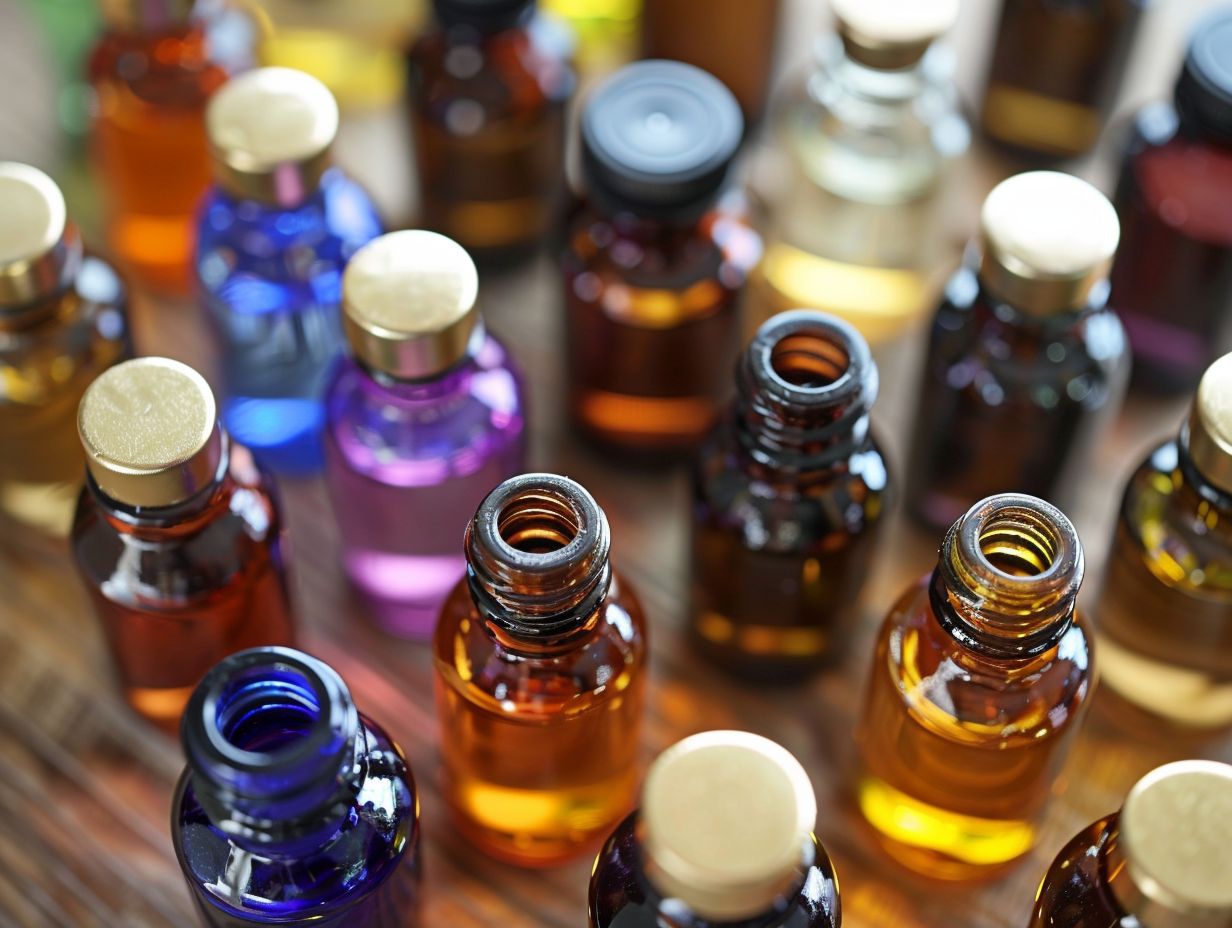
Topical application of essential oils also requires caution, as some oils can cause skin irritation or reactions. It’s crucial to dilute essential oils with carrier oils before applying them directly to the skin to prevent adverse effects. Always follow recommended dilution ratios and guidelines for safe use. Keep essential oils away from mucous membranes and sensitive areas like eyes and inner ears to prevent irritation or discomfort.
- Regularly perform allergy tests before using new essential oils to determine any potential adverse reactions and sensitivity. Testing on a small area of skin and observing for any redness, itching, or irritation can help in identifying possible allergies.
- When diffusing essential oils in the air, ensure proper ventilation and never leave diffusers unattended. Consider the presence of pets, children, or individuals with respiratory conditions when diffusing essential oils, as some oils can be harmful if inhaled in large quantities.
- Always store essential oils in dark glass bottles in a cool, dark place away from direct sunlight to maintain their potency and extend their shelf life. Proper storage helps prevent oxidation and degradation of the oils, ensuring their effectiveness and safety for longer periods.
Do Essential Oils Have Any Real Health Benefits?
Essential oils offer a range of potential health benefits supported by research studies and clinical trials. From stress and anxiety relief to pain management and skin treatments, these oils have shown effectiveness in various therapeutic applications.
One of the key benefits of essential oils is their ability to promote relaxation and reduce stress levels. Research has shown that inhaling certain essential oils, such as lavender or chamomile, can have a calming effect on the mind and body, helping individuals unwind after a long day. The analgesic properties of oils like peppermint and eucalyptus make them popular choices for alleviating headaches and muscular aches.
In skincare, essential oils like tea tree and rosehip have been found to possess antibacterial and anti-inflammatory properties, making them beneficial for acne-prone skin. The antioxidants present in oils such as frankincense and rose can help combat signs of aging and promote a healthy complexion.
Can Essential Oils Help With Stress And Anxiety?
Essential oils are known to help with stress and anxiety due to their impact on the limbic system. Oils like lavender, bergamot, and chamomile have calming effects that promote relaxation and emotional balance.
When these essential oils are diffused or applied topically, their aromatic compounds stimulate the olfactory receptors, sending signals to the brain’s limbic system. This region of the brain is responsible for regulating emotions, memories, and behaviors, making it a key player in managing stress and anxiety.
Lavender oil, with its floral scent, is particularly effective at reducing nervous tension and promoting a sense of calm. Similarly, bergamot oil’s citrusy aroma is known to uplift mood and alleviate anxiety, while chamomile oil’s sweet, herbaceous fragrance can help soothe the mind and body.
Can Essential Oils Help With Pain Relief?
Essential oils can aid in pain relief through their anti-inflammatory and analgesic properties. Oils like peppermint, eucalyptus, and lavender possess compounds that can alleviate discomfort and promote relaxation.
Peppermint oil, known for its cooling sensation, can help to reduce muscle spasms and tension, making it beneficial for headaches and sore muscles.
Eucalyptus oil, with its refreshing scent, is often used to relieve respiratory issues and joint pain due to its anti-inflammatory properties.
Lavender oil, renowned for its calming effects, not only soothes the mind but also helps alleviate pain from conditions like migraines and menstrual cramps.
Can Essential Oils Help With Skin Conditions?
Essential oils are beneficial for addressing various skin conditions like eczema or acne. It is essential to be cautious as some individuals may experience allergic reactions or skin sensitivities to certain oils.
In terms of managing eczema, lavender oil can provide soothing relief for irritated skin due to its anti-inflammatory and calming properties.
For acne-prone skin, tea tree oil is a popular choice known for its antibacterial and anti-inflammatory effects, helping to reduce breakouts and inflammation.
Despite their effectiveness, users should always perform a patch test before applying any essential oils oils topically to check for adverse reactions. Those with sensitive skin or allergies should consult a dermatologist or aromatherapist to determine the safest options for their skin.
Frequently Asked Questions
Are Essential Oils Actually Oils?
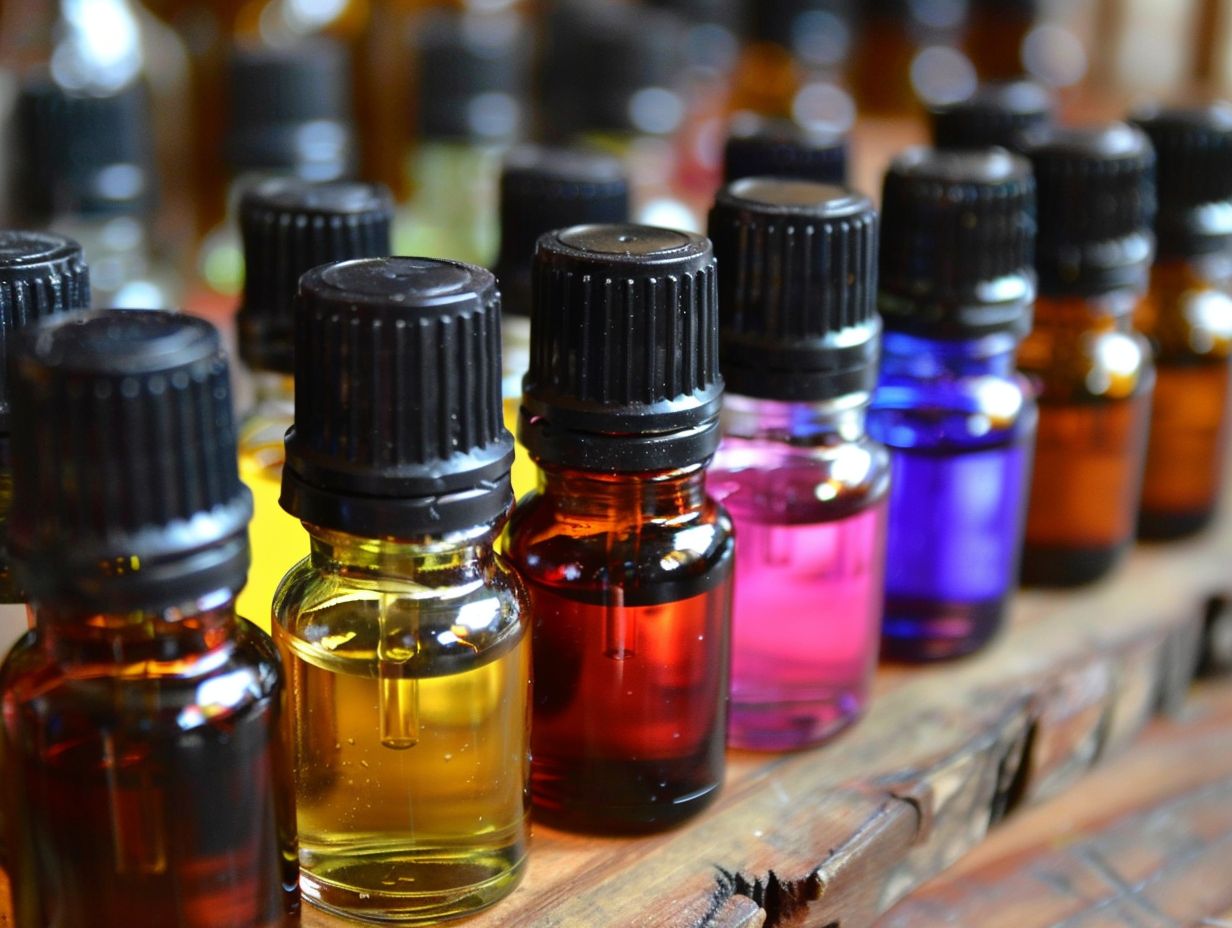
Yes, essential oils are actually oils. They are highly concentrated plant extracts that contain the natural aroma and other beneficial properties of the source plant.
What are Essential Oils?
Essential oils are volatile liquids that are extracted from different parts of plants, such as leaves, flowers, bark, or roots. They are known for their strong and unique scents, as well as their therapeutic benefits.
How Are Essential Oils Made?
Essential oils are made through a process called distillation, where the plant material is heated and the resulting vapor is collected and condensed into a liquid form. This process preserves the natural properties of the plant and creates a highly concentrated oil.
Can Essential Oils be Used Internally?
Not all essential oils are safe to be ingested. It is important to research and consult a qualified professional before consuming essential oils internally. Some oils can be toxic if taken in large amounts.
What Are the Benefits of Using Essential Oils?
The benefits of using essential oils vary depending on the type of oil, but some common benefits include improved mood, relaxation, pain relief, and immune support. They can also be used in natural cleaning and beauty products.
Are Essential Oils Safe for Everyone?
While essential oils can have many benefits, they are not safe for everyone. Some oils may cause allergic reactions, and certain oils should not be used during pregnancy or by young children. It is important to always dilute oils and use them with caution.

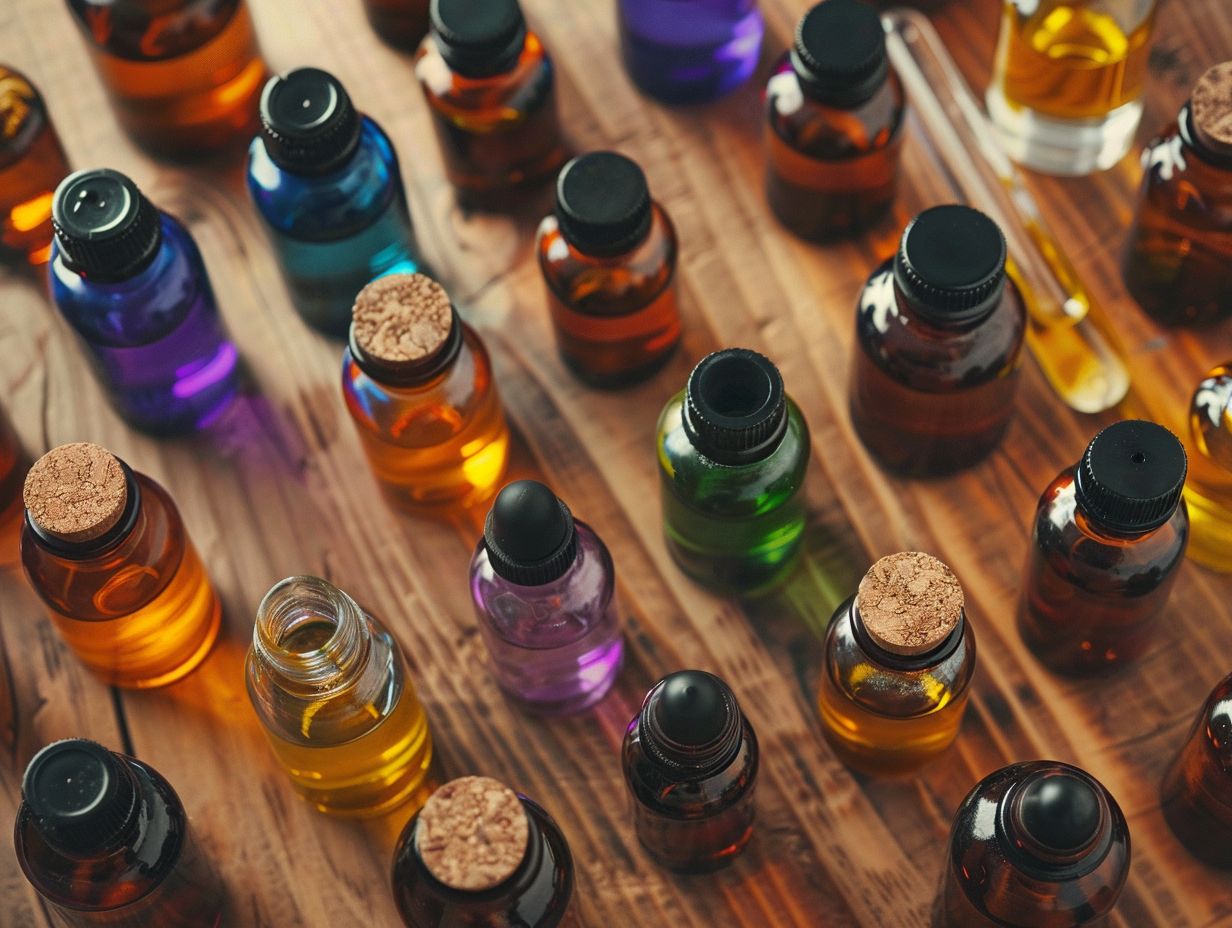
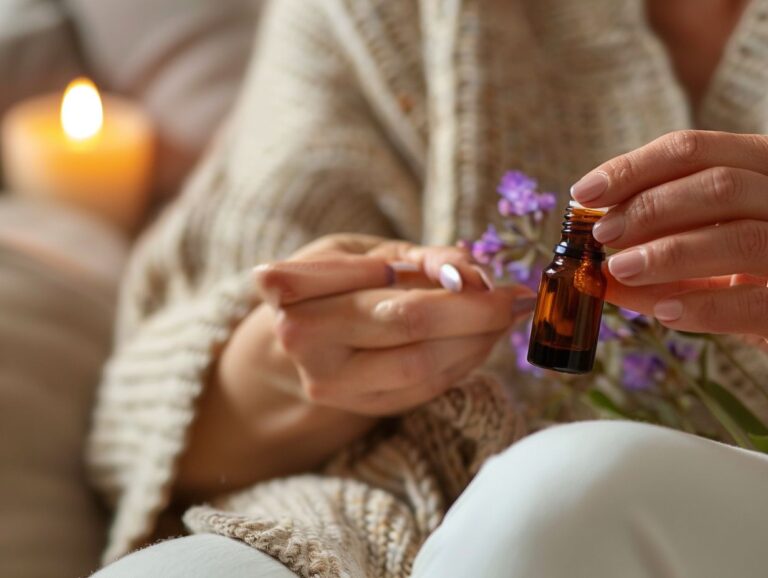
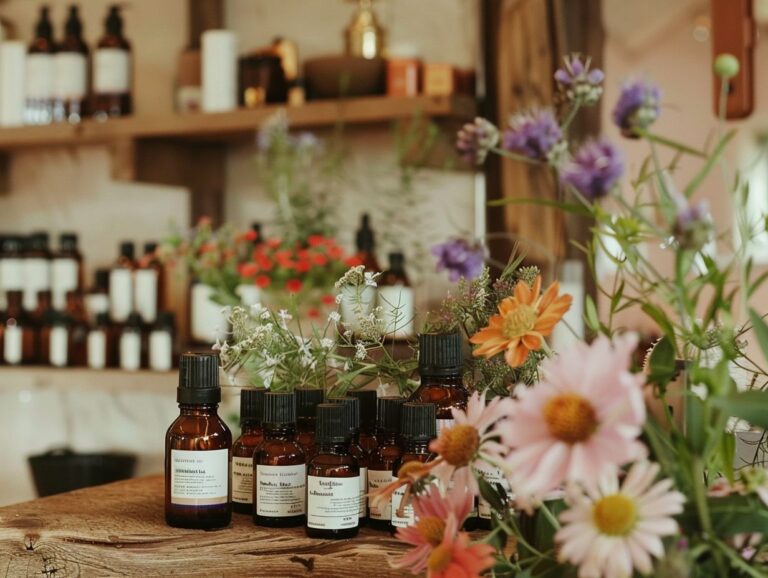

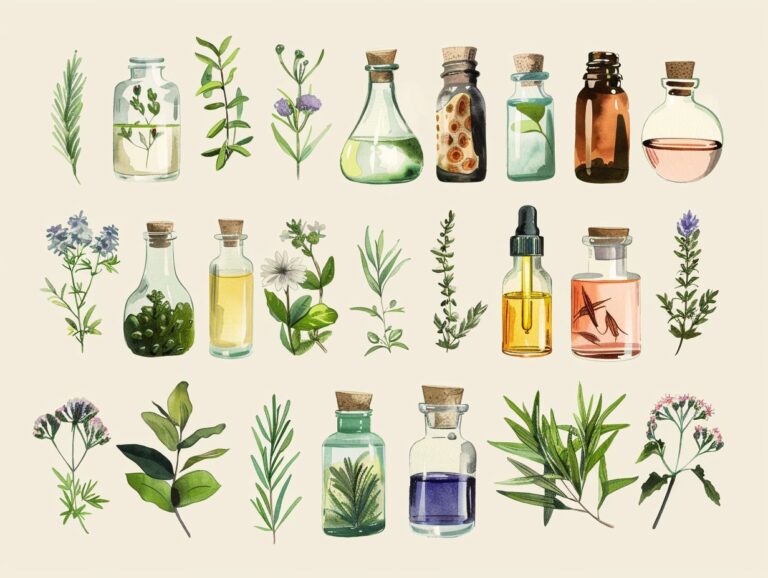
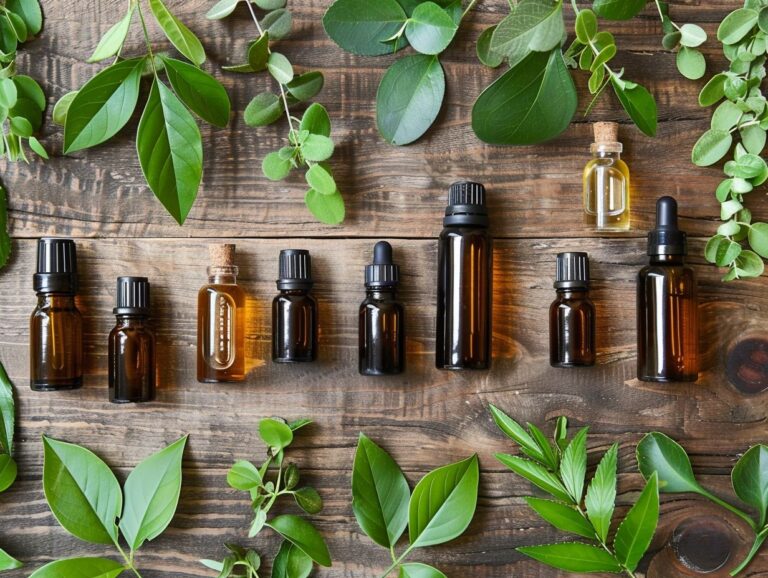

9 Comments